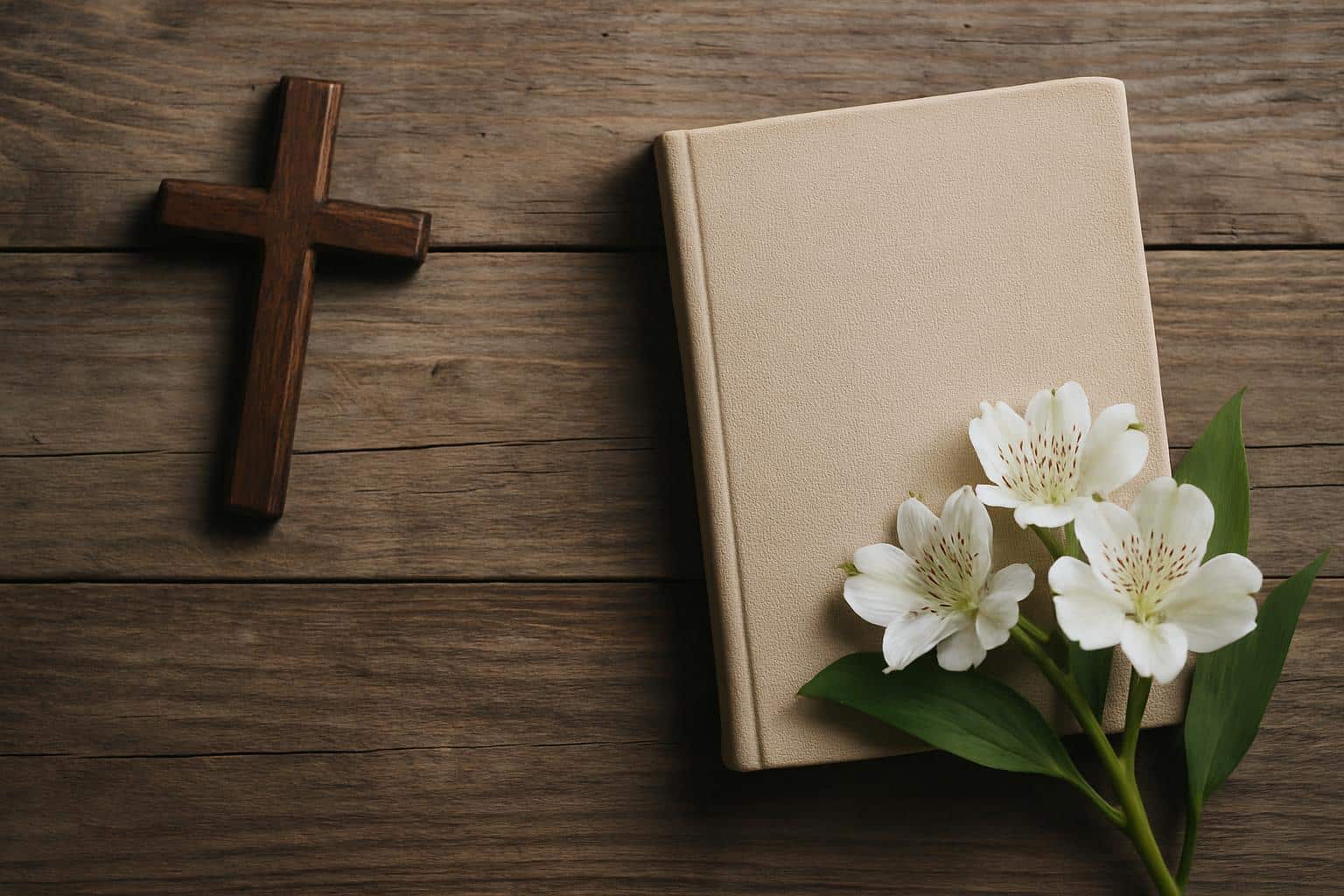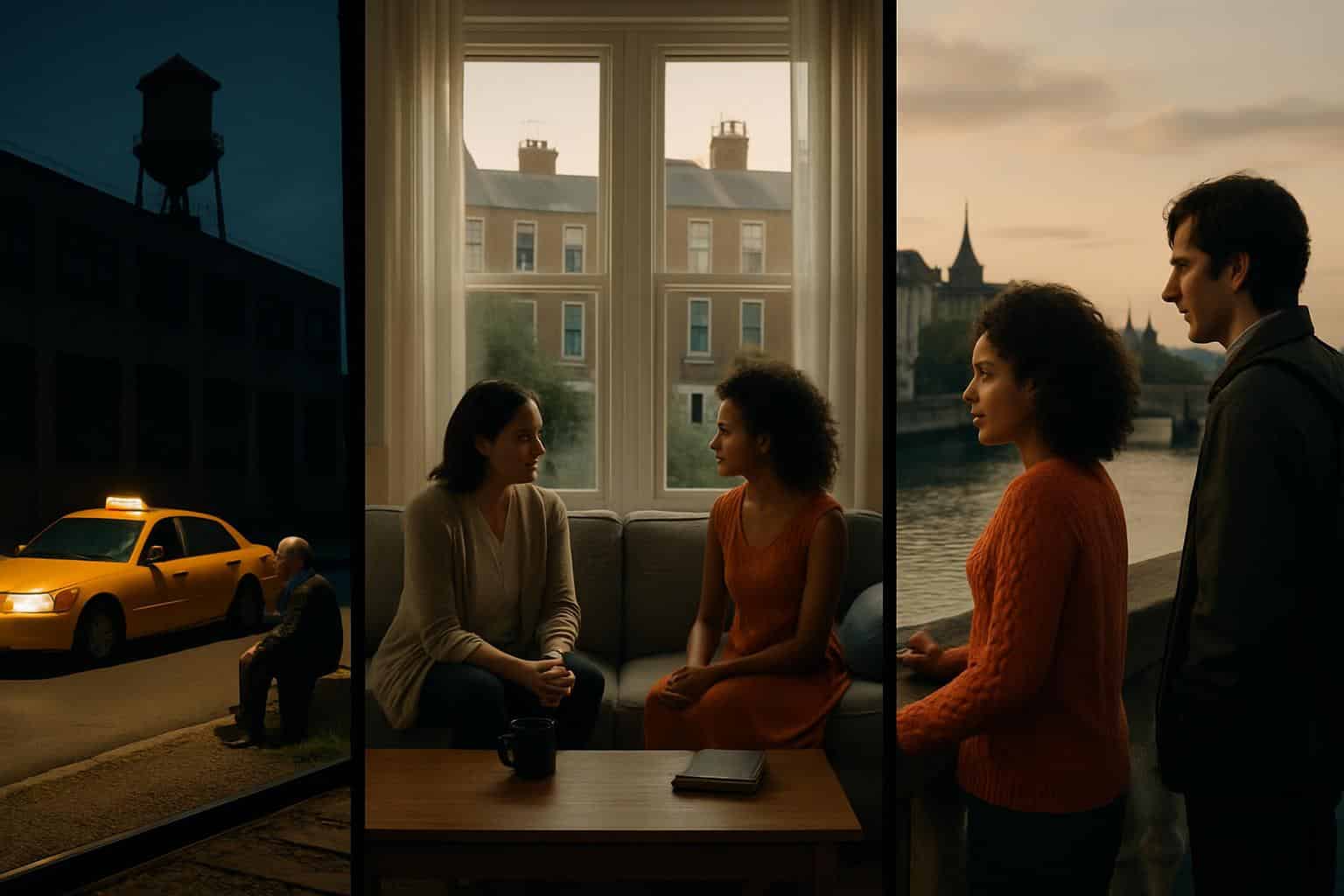Jim Jarmusch’s new one is the softest of thunderclaps. “Father Mother Sister Brother” takes place in three cities, and involves three sets of kinships; it opts for delicate observation over big plot. It is a family dramedy at human frequency, and it reunites the filmmaker with Adam Driver while offering Indya Moore a luminous showcase. The effect is quietly sublime.
A Triptych of Close Encounters Across Three Cities
Jarmusch breaks the film into three chapters — “Father,” “Mother” and “Sister Brother” (sic) — which feel like self-contained visits that are at once straightforward and epochal. In New Jersey, siblings played by Adam Driver and Mayim Bialik reach out to their estranged dad (Tom Waits) with the sort of gauche formality that makes us default to small talk when it’s easier than confronting grief. In Dublin, a celebrated writer (Charlotte Rampling) is visited by her daughters — one an anxious bureaucrat (Cate Blanchett), the other a bohemian fabulist (Vicky Krieps) — for tea that curdles into micro-conflict. In Paris, a pair of twins played by Indya Moore and Luka Sabbat float through their childhood flat after the loss of both parents, completing each other’s thoughts as if it were muscle memory.

Jarmusch has long been partial to modular structures (see “Coffee and Cigarettes” or “Night on Earth”), and he deploys that toolkit here to allow emotional patterns to emerge organically. Every segment squeezes years of private history into glances, hesitations and jokes that hit a half-second too late. The result is tender rather than neat, a mosaic that places the present tense of being in a room with people who know you too well at its center.
Performances That Breathe and Bristle with Life
Driver’s reunion with Jarmusch brings back the patient, unshowy control of that earlier film “Paterson,” but here the actor is a man who keeps his emotions tucked up like a handkerchief in an inside pocket. His Jeff and Bialik’s Emily come starched and stately but bounce off Waits’s shambling, oddly regal patriarch. The clash is visual as well as behavioral: pressed wool versus frayed hoodie, courtesy vs. clutter, and beneath it all, somewhere no one wants to name out loud, love swimming obstinately upstream against the tides of everything else. Waits, a longtime Jarmusch co-conspirator of long standing, rolls warmth and embarrassment into the same shoulder shrug.
Rampling, Blanchett and Krieps form a wittily polished triangle. The good thing is that Rampling carries intellectual hauteur like a bespoke coat, amused by everything and moved by nothing — until she is. Blanchett discovers that silence, too, needs its own music, having a tremor of a teacup sound like a confession. Krieps allows mischief to speak for itself, turning the playfulness into a form of sibling provocation. Their real dialogue is in their faces; not what they’re saying, but the wish to be seen and dread of what that might reveal.
Moore and Sabbat, in contrast, drift through the Paris chapter with a comfort that betrays a bond older than language. Their small talk — on coffee orders, old pictures, and bad habits — is casual rhythm as proof of shared DNA. Where the other families play their roles, these twins act none. It’s the film’s most refreshing hook, and in particular Moore lends the story a buoyancy that keeps sorrow from turning to calcification.
Jarmuschian Tics and Lived-In Craft That Sing
As always, Jarmusch’s pleasures are in detail and drift. Color resonates between chapters — the sneak-back of a red garment, say; objects and phrases resurface in new permutations: an expensive watch that upends our read of a character’s resources, nonalcoholic toasts that feel both celebratory and constrained, skateboarders coasting by in soft focus like time incarnate as drift, not to mention the dry “Bob’s your uncle” (a saying you can interpret how you will) arriving with a different punctuation each go-round. The little motifs pile up as a private grammar.

The filmmaking is as unpretentious as the emotions are tangled. The camera loves a still frame and controlled cut, allowing the audience to do the decoding instead of spelling everything out. The soundscape favors hushed rooms, ambient city life and a gauzy, guitar-forward score in the recent spirit of his collaborations. It’s that sort of thoughtful craft, rather than any slap-happy combustion, that critics tend to cite when talking about Jarmusch’s “hangout cinema” films you inhabit rather than conquer.
Context matters, too. Unveiled at a major fall festival that specializes in audience-forward showcases, the film was greeted in the room with laughs seconded by the collective holding of breath. In a post-screening talk, Jarmusch pushed back at the notion of a thesis. That makes sense: his work has always favored circumference over bull’s-eyes, sensation over sermon. Distribution from MUBI — the upstart outfit that has been aggressive in auteur-driven releases across certain territories — means the film is set for upscale theatrical play and run, one likely to inspire lots of revisiting and rethinking.
What It Says Without Saying About Family Ties
Father Mother Sister Brother isn’t exactly reconciliation so much as recognition. Families have their own folklore, the story you tell yourself about who your father is, who your mother was, who your sister turned into when you weren’t paying attention. Jarmusch enshrines those myths without embalming them. He allows these people to exist for an afternoon and then eases away, relying on viewers to write the subsequent chapter.
For longtime fans, it’s top-shelf Jarmusch: dry wit, immaculate casting and an affection for human awkwardness that never curdles into cynicism. For those who have never crossed The Pond, it’s a graceful point of access, evidence that the smallest gesture — being served pastries, mismatched clothes, a jumbled memory shared incorrectly — can open to view an entire universe.
Call it noticing comedy. The punchlines are tender, the heartbreaks softened and an afterglow is inevitable. Modestly enough, the film argues that just being there with your people is the given motive of plot.

